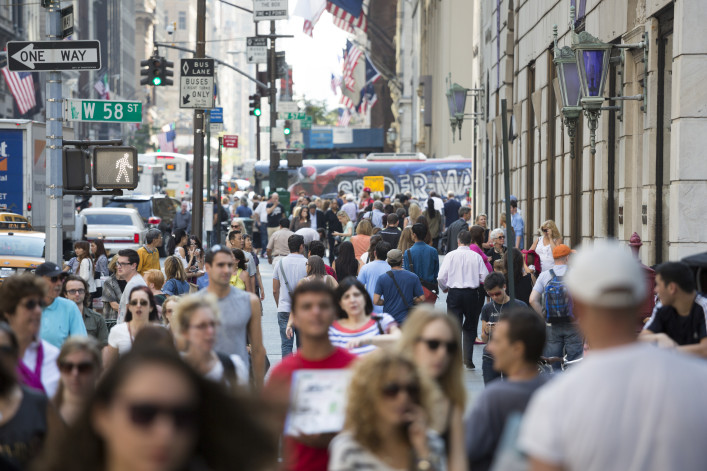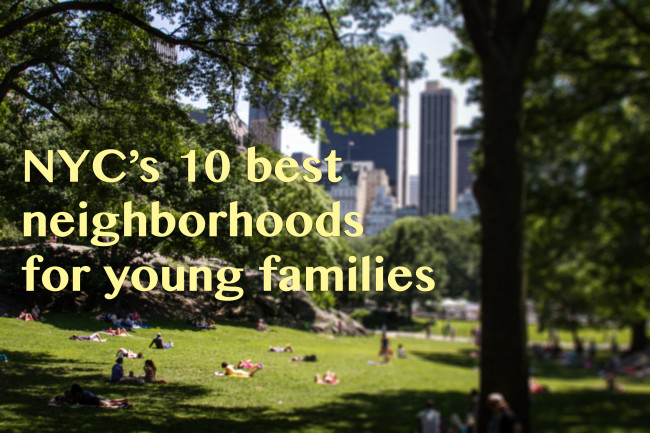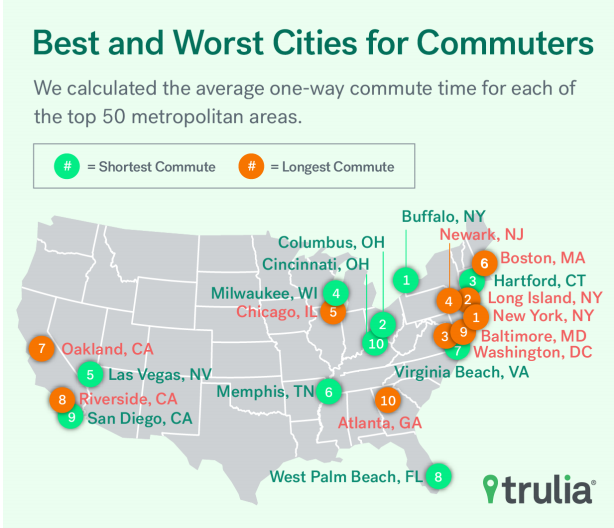Would you be happier in a suburb? A new study suggests that city living is overrated

Each year, thousands relocate to major urban centers like NYC—according New York’s Department of City Planning, the city is currently experiencing its most intense population growth in almost 100 years—but a new study shows newcomers may actually be less happy after their move than they were before.
CityLab reports on two recent sociological studies that reveal that city dwellers, on average, feel less happy than those living in more rural areas. And two of the unhappiest counties in the entire country are right here: the Bronx and Brooklyn.
Adam Okulicz-Kozaryn, a professor of public policy at Rutgers University-Camden and co-author of the study with Joan Maya Mazelis, explains that he examined data from a survey conducted by the Centers for Disease Control, which asked Americans to rate how happy they are with their lives on a scale of one to ten. What he and Mazelis found is that people living in larger, denser cities report lower levels of well-being than those in more sparsely populated areas.
Size and crowding seem to be the primary obstacles to contentment in cities, more so even than crime and poverty. Indeed, Okulicz-Kozaryn points out, places like Detroit, the poorest metro area in the U.S., still rate higher for happiness than the richer—but denser—Kings County.
“Big cities are overrated,” Okulicz-Kozaryn says. “Especially places like New York. Housing is crazy expensive, and you have to work long hours. If you observe people, they look worn-down and tired, but if you go to some smaller place where it’s less dense, people seem more relaxed.”
A further visual comparison can be made when it comes to how residents present themselves—and compete with one another at a superficial level. Okulicz-Kozaryn notes that in large cities, there is often a greater focus on fashion: “There’s extreme commodification, in which people derive happiness from being rewarded by others, rather than it coming from themselves,” he says.
Another factor that seems to provoke misery is commute time: “People are most miserable in their lives during commutes,” says Okulicz-Kozaryn. Given that New Yorkers face the longest journeys to work in the nation, then, it makes sense that we’re gloomier than those in smaller cities who have quicker trips.
And it turns out that sappy rom-coms like Sweet Home Alabama, in which Reese Witherspoon’s character flees her small town in the south to become a big shot in NYC, only to be drawn back to her rural roots, contain a kernel of truth. “People are excited about cities and demand is growing, but data are showing that people are happier in suburbs, after all,” Okulicz-Kozaryn says.
Perhaps more Americans are realizing this. Per a recent article in the Washington Post, suburbs and exurbs are actually growing at a faster pace than cities, particularly in the south and the west. And in the urban centers that are expanding, the majority of new arrivals are young and wealthy.
This makes particular sense for NYC, Okulicz-Kozaryn says, where “if you are young, well-educated, and wealthy, then it’s all good. But once you have kids, you need more space and then you’re less happy.”
Of course, what cities deprive their residents in terms of space, they make up for in cultural offerings, employment opportunities, and in many cases, diversity. But for some, the slower pace of life and greater affordability offered by the burbs outweighs all that.
In a personal essay for CityLab, one writer recounted relocating from inner London to a little suburb and finding all the hype surrounding cities to be merely a myth. “I feel happy—relieved, even—to call myself a suburbanite,” he writes.
Wonder how many New Yorkers, too, would feel the same?
You Might Also Like



























